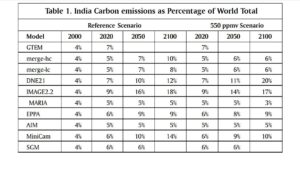Companion@360 → 7 Month programme to sharpen your writing skills → REGISTER NOW

Global Commons at Threats
Global commons refer to shared resources that cannot be managed within national jurisdictions. The spread of zoonotic diseases like COVID-19; greenhouse gas emissions; biodiversity reduction; overfishing; and the accumulation of plastic waste are some of the problems within the scope of global commons.
Global commons
Global commons is a term typically used to describe international, supranational, and global resource domains in which common-pool resources are found. International law identifies four global commons as follows:
- The High Seas
- The Atmosphere
- Antarctica
- Outer Space
Significance of Common:
| Globally | India |
| A third of the global population depends on ‘Commons’ for their survival; 65% of the global land area is under ‘Commons’, in different forms. | The extent of ‘Common’ land ranges between 48.69 million and 84.2 million hectares, constituting 15-25% of its total geographical area. |
| At least 293,061 million metric tonnes of carbon (MtC) are stored in the collective forestlands of indigenous peoples and local communities. | They contribute $5 billion a year to the incomes of poor Indian households |
| The significance of ‘Commons’ in supporting pollination (the cost estimated to be worth $224 billion annually at global levels) cannot be overlooked. | Around 77% of India’s livestock is kept in grazing-based or extensive systems and dependent on ‘Commons’ pool resources. |
| 53% of India’s milk and 74% of its meat requirements are met from livestock kept in extensive ‘Common’ systems. |
Global Commons Alliance:
- The Earth Commission — A select team of scientists to synthesize the latest research, anticipate tipping points and assess the limits of the entire Earth system. Read the press release: Earth Commission to Identify Risks, Guardrails, and Targets for the Planet.
- Science-Based Targets Network – A group of international NGOs to turn the science into practical applications for companies and cities to set goals for operating within Earth’s limits.
- Systems Change – Building new partnerships to transform our food system, green our cities, decarbonize the global energy system, and move towards a circular economy.
- Earth HQ – A media portal for the planet, to connect people across the globe and share the big picture of how all Earth systems are performing and tracking progress towards solutions.
Issues related to Global Commons:
- Multilateral Negotiations on Climate Change and other global commons over decades have had limited success
- According to a report by the Convention on Biological Diversity (CBD), biodiversity has been mismanaged so badly that 60% of the lost resources can never be recouped.
- National Sample Survey Office data show a 1.9% quinquennial rate of decline in the area of ‘Common’ lands, though microstudies show a much more rapid decline of 31-55% over 50 years.
(Carbon Emission Projections for India)
Challenges:
- over-exploitation and rapid degradation
- The opposing and dominant world view of the ‘developmentalism’ is predicated on the value of built infrastructure and requires the constant colonization of open land and resources.
- Failures will be inevitable if we stimulate local-level experimentation, and higher-level authorities need to provide insurance for those cases.
Way Forward:
- Governing global commons is the defining challenge for current and future generations.
- To manage our global commons, we need to facilitate and accommodate the self-governance of local commons, but provide safeguards at different levels to avoid exploitation and manage risks.
- At the local levels, initiatives and solutions could be developed that fit the local context.
- When expertise is not available, higher-level organizations could facilitate learning from peers in similar conditions.
- Failures will be inevitable if we stimulate local-level experimentation, and higher-level authorities need to provide insurance for those cases.
Read Also Global Energy Transition Index


